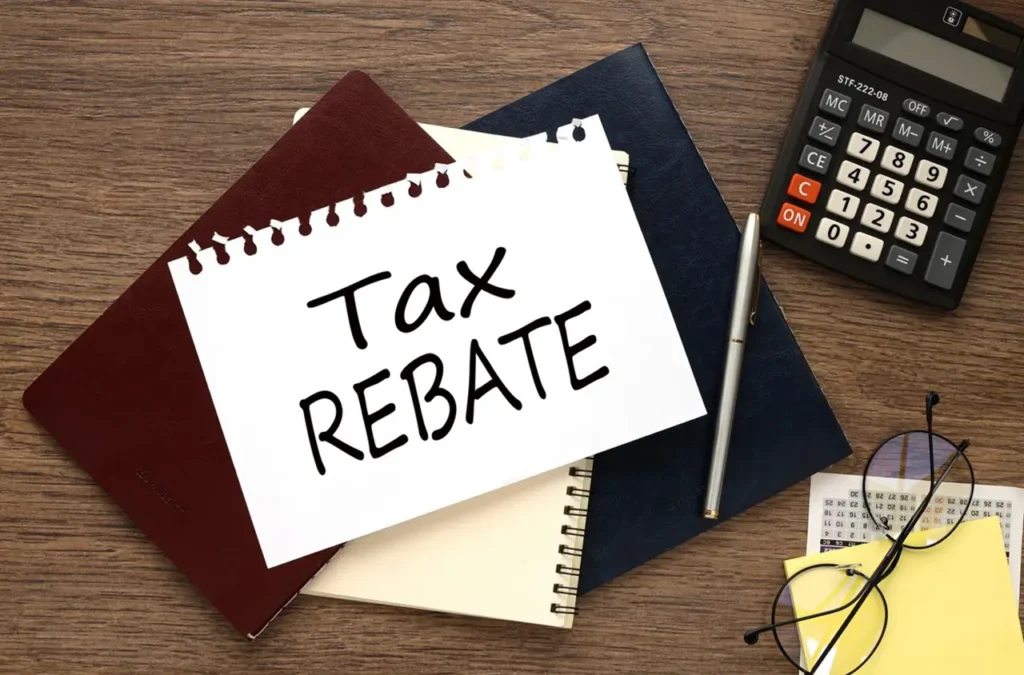HMRC may be efficient in managing taxes, but mistakes can still happen, and frequently. Miscalculations usually result in overpaid taxes, but these are repaid as rebates. However, in some instances, HMRC do not issue tax rebates automatically, leading many taxpayers asking, ‘Am I owed a tax rebate UK?’
Whether one is eligible for a tax rebate, otherwise known as a tax refund, find out more below. This guide also covers what UK taxpayers can claim refunds on, how to claim, and other relevant FAQs.
What Is HMRC Tax Refund?
HMRC owes tax refunds if taxpayers overpay any tax. Eligibility varies based on employment status, whether employed or self employed, and individual circumstances. At the end of the tax year, HMRC informs taxpayers of the rebate due and is obligated to make any tax repayment. If the rebate is not processed, individuals may need to actively pursue refunds themselves.
The payable refund is based on various factors, including an individual’s income bracket, work-from-home status, and employment-related expenses for equipment, vehicles, or services. Taxpayers will most likely receive P8100 tax forms from HMRC indicating the tax refunds.

However, in some instances, tax benefits and allowances factor in, which taxpayers might not be aware of and HMRC was not able to process for rebate. Those who do not receive a refund notice or the payable amount will need to proactively contact HMRC offices.
The refund may be credited in the taxpayer’s bank accounts as quickly as within five working days. If the amount of time exceeds, the taxpayer may receive the refund through a cheque. Moreover, if the rebate covers more than a year, they may get a lump sum cheque for the payment.
There are various causes for tax overpayment, such as changing jobs within a year and getting the wrong tax code in the process, either by the employer or HMRC (learn more below). Whatever the reason, it ended up with the individual overpaying tax. Moreover, it is worth noting that a tax refund is different from tax relief.
When Am I Owed a Tax Rebate UK?
UK taxpayers are eligible for a tax rebate if they have overpaid taxes or have unclaimed refunds. In the case of PAYE workers, excess tax payment usually happens due to the following:
- They start a new job and are given an emergency tax code.
- HMRC gives their employers the wrong tax code.
- Their employers use the wrong tax code.
- They have more than one PAYE job.
- Their company benefits have changed (e.g., health insurance, company vehicle, etc.), which results in a changed tax code. The K tax code usually applies in this situation.
- They are due work-related expenses refund, such as for uniform cleaning.
For the self-employed, these are usually the reasons tax overpayment happens:
- They overpay when making Payments on Account based on last year’s income.
- They are construction workers under the Construction Industry Scheme (CIS) who often receive a rebate as contractors deduct 20% tax from earnings.
For CIS workers, check out: CIS Calculator for Subcontractor’s Tax Deductions and Rebate.
Other less common reasons of overpaying taxes include:
- Overpaying on savings interest
- Pensioners with multiple pension pots
- Changes in state benefits
- Stopping work
Understanding the list of tax codes and what they mean is crucial for rebate checks and PAYE tax management, preventing potential errors in tax payments from the outset. Tax codes also indicate whether employees are eligible to claim a rebate or not. Click the link for more information.
Verifying tax payments, especially how much income tax was paid in the previous year/s, can be done through the Personal Tax Account. The P60 is also a valuable source of information for employees on their previous year’s income tax and National Insurance payments.
What Can I Claim Tax Refund On?
UK taxpayers can claim a refund on any overpaid taxable income, including various sources and expenses:
- Salary from current or previous employment
- Pension payments and income from life or pension annuities
- Redundancy payments
- Self-assessment tax returns
- Interest from savings or payment protection insurance (PPI)
- Foreign income and UK income if residing abroad
- Job-related expenses such as working from home, fuel, work clothing, or tools
- Earnings in the United Kingdom before leaving
See relevant article about working from home: Do You Get Tax Relief Working from Home in the UK?
How Can I Claim HMRC Rebate?
Claiming a rebate depends on the taxpayer’s employment status and other factors. Generally, they can call the HMRC helpline or use postal support for assistance.
- Those who receive a P800 indicating a refund can claim it online via the Government Gateway. They will only need to answer eligibility questions and provide bank details for expedited processing.
- PAYE employees or pensioners should call HMRC with their National Insurance Number to adjust their tax code.
- Self-employed individuals will need to submit a UK tax return to process their rebate. Submitting tax return should be within the filing deadline.
Learn more about the self assessment period, filing procedures, and more here: A Comprehensive Self Assessment Guide for Beginners.
Other Tax Rebate FAQs
Self-employed individuals are required to file self-assessments to report their incomes and pay their tax as per the UK tax legislation. They also go through the same process when claiming rebate for overpaid tax.
Fiscal policy allows overdue claims to be made for up to four years.
UK taxpayers who are leaving the UK may complete form P85 to claim their tax refunds.
An individual qualifies as a UK taxpayer if they have tax deducted from their wages or pension, complete a self-assessment tax return, or earn taxable savings, pension plan income, or investment income.
Receiving a UK tax refund typically takes between 5 days and 8 weeks, depending on the system used (PAYE or self-assessment), the application method (online or paper), and any security checks conducted by HMRC.
How Can Legend Financial Help?
Am I owed a tax rebate UK? If you are in any of the situations listed above, then HMRC may owe you a refund. The taxman is obliged to give you a rebate of any tax overpayments, so be sure to claim what is rightfully yours. Legend Financial is here to help you whether you are employed or self-employed.
For over ten years, we have helped a lot of clients from all walks of life to claim any rebates, optimising their tax position overall. Our goal is to help you increase your take-home pay and reduce your tax liabilities, from tax planning to claiming refunds and reliefs. Talk to our tax accountants today!










